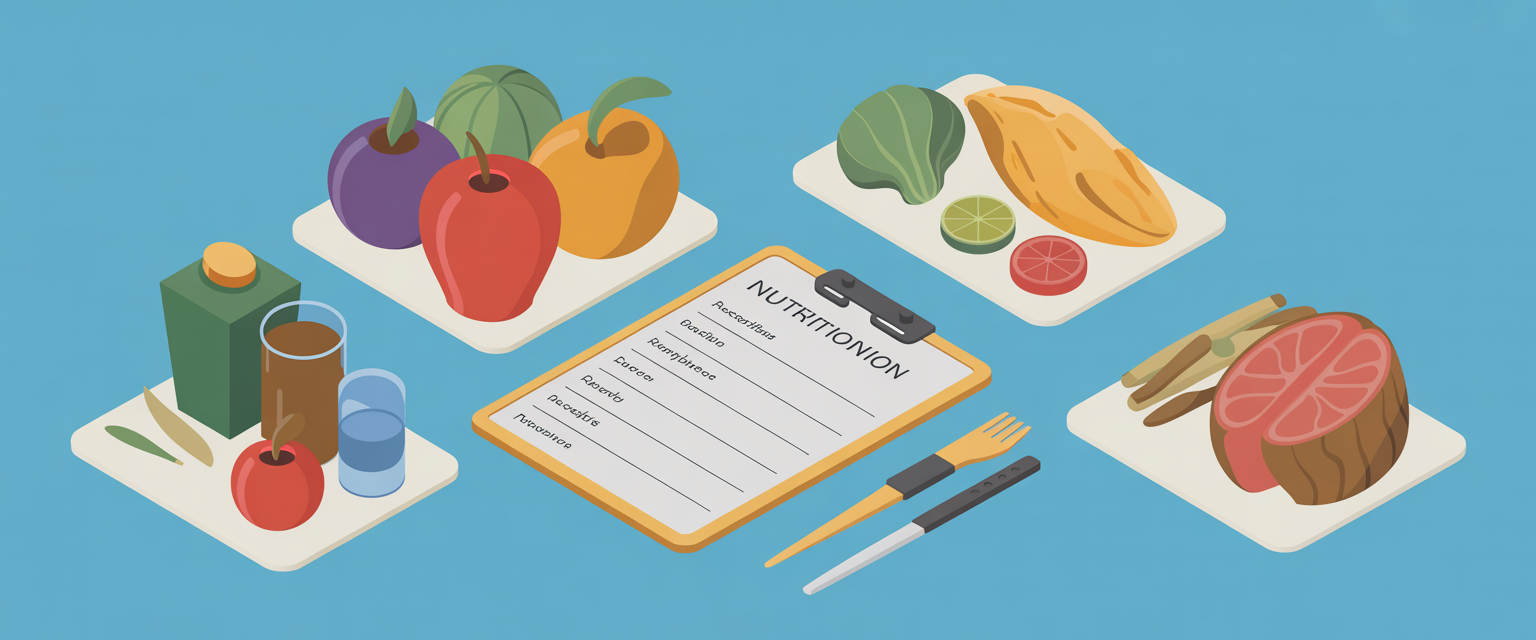Where nutrition assessment tools fall short

TL;DR
New research analyzing nutrition assessment tools for older adults reveals a critical gap: current methods fail to provide personalized guidance for managing chronic diseases through nutrition. This means millions of aging adults lack the targeted nutritional support they need to optimize their health, cognitive function, and quality of life as they age.
Why This Matters
Nutrition literacy—your ability to understand, evaluate, and apply nutritional information—directly determines how well you age. Poor nutrition literacy contributes to malnutrition, cognitive decline, and worsening chronic diseases in older adults. Yet this comprehensive analysis of 12 major assessment tools reveals that healthcare providers lack adequate methods to evaluate and improve nutrition literacy in ways that address individual health conditions. For health-conscious individuals planning for healthy aging, this research highlights the urgent need for more personalized approaches to nutritional assessment and intervention, especially as you navigate age-related health challenges.
Key Research Findings
Researchers analyzed 1,995 studies across seven major databases, ultimately identifying 12 distinct nutrition literacy assessment tools currently used with older adults. Their findings reveal significant limitations:
Assessment Tool Categories:
- Unidimensional tools: Only 2 tools (SNAQ and NLAT) focus on single aspects of nutrition
- Multidimensional tools: 10 tools attempt to assess multiple nutrition-related factors
- Validation gaps: Several tools lack proper reliability or validity testing
Critical Limitations Discovered:
- Most tools focus only on basic nutritional knowledge rather than practical application
- Limited cultural appropriateness across diverse populations
- Inadequate assessment of disease-specific nutritional needs
- Poor integration of dynamic health monitoring capabilities
Reliability Concerns:
The research revealed concerning validation issues. The Portuguese version of the Mini-Nutritional Assessment was validated for accuracy but never tested for consistency, while the Nutrition Literacy Assessment Tool was tested for consistency but never validated for accuracy—fundamental flaws that compromise their clinical usefulness.
What This Really Means
For Your Health Strategy:
Current nutrition assessment approaches treat aging adults as a homogeneous group, ignoring the reality that someone managing diabetes needs different nutritional guidance than someone with heart disease or cognitive decline. This one-size-fits-all approach may explain why many older adults struggle to translate general nutrition advice into meaningful health improvements.
For Chronic Disease Management:
The research highlights a critical blind spot: existing tools inadequately address how nutrition literacy impacts management of specific chronic conditions. This means healthcare providers lack the precision tools needed to help patients optimize nutrition for conditions like diabetes, cardiovascular disease, or cognitive decline.
For Cognitive Health:
Poor nutrition literacy doesn't just affect what you eat—it impacts your brain's ability to function optimally. The research suggests current assessment methods miss opportunities to identify and address nutrition-related cognitive risks before they become problematic.
The Missing Pieces
Cultural Adaptation:
Most assessment tools were developed for specific populations but haven't been properly validated across different cultural groups. This creates significant gaps in effectiveness for diverse communities with varying dietary traditions and health beliefs.
Disease-Specific Indicators:
Current tools fail to incorporate nutritional knowledge and monitoring specific to chronic diseases. For example, someone with diabetes needs assessment of their understanding of carbohydrate management, blood sugar monitoring, and medication-food interactions—areas largely ignored by existing tools.
Dynamic Monitoring:
Static assessments can't capture how nutrition literacy and needs change over time as health conditions evolve. The research calls for tools that can track and adapt to changing health status and cognitive capacity.
What You Can Do
Assess Your Own Nutrition Literacy:
Evaluate your ability to read nutrition labels, understand portion sizes, and apply nutritional information to your specific health conditions. Consider working with a registered dietitian who can provide personalized assessment beyond standard tools.
Focus on Disease-Specific Knowledge:
If you have chronic conditions, seek education specifically tailored to your health needs rather than relying on general nutrition advice. This might include understanding how medications interact with nutrients or how specific foods affect your condition.
Build Practical Skills:
Move beyond basic nutrition knowledge to develop practical skills like meal planning for your health conditions, reading ingredient lists effectively, and understanding how your body responds to different foods.
Advocate for Better Assessment:
When working with healthcare providers, ask for nutrition assessments that consider your specific health conditions, cultural background, and individual goals rather than generic evaluations.
What to Watch
Personalized Assessment Tools:
Researchers are calling for development of adaptable, disease-specific nutrition literacy tools that can be customized for individual health conditions and cultural contexts.
Cross-Cultural Validation:
Expect increased focus on developing assessment tools that work effectively across diverse populations, incorporating cultural dietary practices and health beliefs.
Technology Integration:
Future tools may incorporate digital platforms that can provide dynamic monitoring and personalized feedback based on changing health status and nutrition literacy levels.
Healthcare Policy Changes:
This research may influence healthcare policies around nutrition assessment and intervention for older adults, potentially leading to more comprehensive and personalized approaches.
The Bottom Line
Current nutrition literacy assessment tools are inadequate for the personalized, disease-specific guidance that aging adults need to optimize their health. This research gap affects millions of older adults who could benefit from more targeted nutritional support. While healthcare systems work to develop better tools, focus on building practical nutrition skills specific to your health conditions and seek personalized guidance from qualified professionals who can assess your individual needs beyond standard questionnaires.



